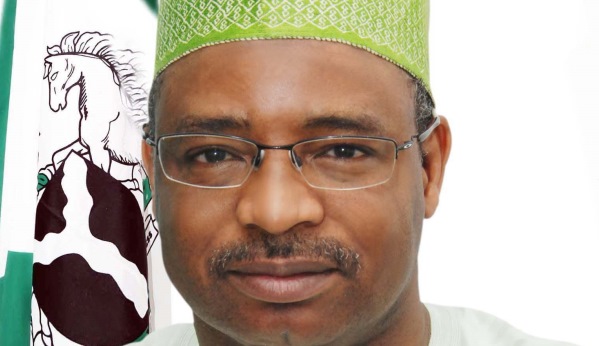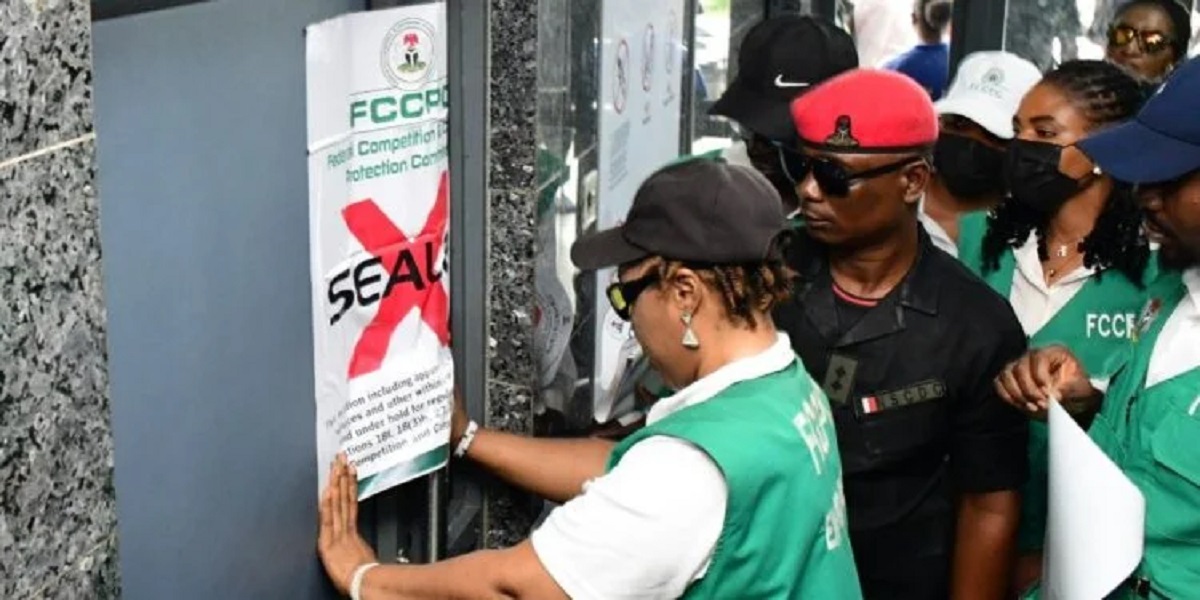News
FG Pledges to Provide Identification for All Nigerians in 5 Years

The Federal Government has declared its determination to provide a lifelong unique identification for every individual physically residing in Nigeria and Nigerians in the diaspora within the next five years.
Engr. Aliyu Aziz, Director-General of the National Identity Management Commission (NIMC), made the declaration yesterday, while speaking at the Fifth Annual Meeting of the Identity for Africa (ID4Africa) Movement holding in Johannesburg, South Africa.
Addressing the over 1,500 delegates at the world’s largest identity for development gathering, Engr. Aziz stated that for Nigeria to enhance governance, help its people rise out of poverty, restore growth and participate in the digital economy, “we need a unique digital identification platform that is linked to functional ID registries for accessing services.”
In realization of the demands to function in the digital economy for sustainable growth therefore, Engr. Aziz told the audience that Nigeria is executing a digital identity ecosystem project endorsed in September 2018 by the Federal Executive Council, the highest decision-making organ of government.
Laying bare the grand plan by the government in his paper titled ‘Digital Identity the Cornerstone to Effective Service Delivery’ Engr. Aziz revealed that the “Strategic Roadmap Vision is to reach universal coverage of robust digital identification in Nigeria” by applying an ecosystem approach of enrolling citizens of all ages and legal residents within the set time-frame.
“The ecosystem approach of enrollment will constitute trusted partners, and a pay-per-play model for successful enrollments,” Engr. Aziz said, adding “the purpose of the ecosystem approach is to leverage existing capabilities and enrollment facilities of government agencies, partners and private sector operators in Nigeria, as opposed to building new ones.”
Explaining further, he said the ecosystem approach leverages the capacity of “all ID stakeholders in the ecosystem to reach full coverage of the target population.”
Engr. Aziz listed some unique and beneficial features of the digital ID ecosystem approach to include, among others:
- Federal Government-led initiative to collect biometric data nationwide in one go;
- coordinated effort to avoid duplicating data collection at high cost and time;
- leverage existing ecosystem of Government agencies (including Federal, State and LGAs) and Private sector organisations;
- NIMC facilitates collecting identity data (biometric and demographic data)
- Partners collect data and are paid per successful enrolment;
- NIMC stores data and uses same to offer a Unique ID.
The director-general named some of the stakeholders and partners in the ecosystem approach to include the National Population Commission, Nigeria Immigration Service, Federal Inland Revenue Service, Central Bank of Nigeria, National Health Insurance Scheme, National Independent Electoral Commission and the Federal Road Safety Commission.
Others include the Corporate Affairs Commission, Nigerian Communications Commission, Joint Admissions and Matriculation Board, the Nigeria Police Force and the National Pension Commission.
He said on January 1, 2019 government began the mandatory enforcement of the use of the National Identification Number (NIN) for such services like application for and issuance of passport, registration of voters, opening of bank accounts, all consumer credit transactions, purchase of insurance policies, transactions with social security implications, all land related transactions, transactions specified under the contributory health insurance scheme, payment of taxes, transactions pertaining to pension, admission into schools and all other relevant government services.
“Proving ‘who is who’ in Nigeria is critical to accessing services physically and electronically as well as in identifying the targeted beneficiaries of a programme, project or scheme,” Engr. Aziz reasoned.
According to him, “there is a strong correlation between identification and service delivery and this is central in the effective delivery of important services to the people by the Federal Government.”
He said there was no option for Nigeria than embrace and implement digital identity as “all modern economic services are done digitally and rely on good identification in order to promote economic growth and opportunities.”
Engr. Aziz said the benefits of the digital identity ecosystem approach are, among others, to scale up enrolment, extend coverage nationwide, reduce cost in data collection, speed-up delivery, provide digital verification of ID anytime and anywhere in Nigeria, just as a well-developed digital identification program will help deliver the government’s development agenda, and provide for key government services, such as safety net, financial inclusion, security and agriculture.
News
DBN Awards N13m in Grants to Tech Startups

Development Bank of Nigeria (DBN) has awarded a total of N13 million in grants to three standout tech startups at the 2025 Techpreneur Summit held in Lagos, reinforcing its commitment to innovation and inclusive growth among Nigeria’s micro, small, and medium enterprises (MSMEs).

The winners include: BuyScrap, a digital marketplace for recyclable materials – N6 million; Qiqi Farms, which connects local farmers to hospitality and export markets – N4 million; Eco-Cyclers, a youth-led recycling initiative based in Enugu – N3 million
Alongside the grant awards, DBN also launched a new digital data asset, a first-of-its-kind platform aimed at enabling data-driven decisions within the MSME ecosystem.
The platform offers deep insights into business trends, sector-specific challenges, and growth opportunities—supporting smarter policymaking and targeted investments.
In his keynote address in Lagos, Tony Okpanachi, managing director/ CEO, DBN, described the event’s theme, “CTRL + SHIFT: Tech Empowered Movement for Naija,” as a strategic call to reimagine enterprise development in Nigeria.
“This isn’t just a keyboard shortcut,” he said. “It’s a mindset reset—powered by technology—to build a more inclusive, innovative, and resilient business landscape. From financing to innovation, DBN remains committed to enabling MSMEs to thrive.”
Okpanachi emphasized that the Summit aligns with DBN’s AMPLIFI Strategy, which integrates digital transformation, sustainability, and scalability into its core programs.
He highlighted initiatives such as the Digital Shift Workshops and the Eco-Innovation Challenge as key steps toward embedding innovation in Nigeria’s MSME sector.
Encouraging young innovators, he added: “The future belongs to those bold enough to imagine and build it. DBN is proud to support the ideas that will shape tomorrow.”
A major highlight was the unveiling of the DBN Data Asset—a digital platform designed to provide real-time, evidence-based insights into Nigeria’s MSME landscape.
The platform combines DBN’s proprietary data with external sources like the National Bureau of Statistics (NBS) to offer a comprehensive view of MSME performance by region and sector.
Jeremy Dan Okayi, DBN’s Head of Strategy, Policy & Innovation, described the platform as: “A reservoir of insight, potential, and direction—built on two years of collaboration and shared vision. This tool will support informed decision-making across the public and private sectors.”
News
FCCPC Shuts France, Belgium, and Italy Visa Centres in Abuja Over Alleged Consumer Rights Violations

In a bold enforcement action, the Federal Competition and Consumer Protection Commission (FCCPC), supported by the Nigeria Police Force and the Nigeria Security and Civil Defence Corps (NSCDC), has sealed off the visa application centres of France, Belgium, and Italy in Abuja over alleged consumer protection breaches and obstruction of regulatory investigations.

The affected centres—located at Mukhtar El-Yakub House in the Central Business District and operated by TLS Contact, a Teleperformance Company—were shut down following reports that they refused to accept formal correspondence from the FCCPC regarding a consumer complaint. The Commission cited further infractions, including obstruction of investigation and alleged assault of its officers during lawful duties.
Speaking to journalists at the scene, Mrs. Boladale Adeyinka, Director of Surveillance and Investigations at the FCCPC, explained: “This is an enforcement operation against TLS. On March 25, 2025, we served them a letter to address a consumer complaint, which they refused to accept. Instead, TLS officers assaulted our team, and in a subsequent visit on June 17, they also allegedly assaulted uniformed police officers.”
Citing Section 33 of the Federal Competition and Consumer Protection Act (FCCPA), Mrs. Adeyinka emphasized that failure to comply with Commission directives constitutes a criminal offense, punishable by imprisonment, fines of up to ₦20 million, or both.
TLS has been ordered to appear before the Commission on June 20, 2025, to provide testimony, submit evidence, and make formal depositions. The company may be held liable for any financial losses suffered by applicants due to the disruption of visa services.
Despite multiple requests for comment, management at TLS Contact declined to respond as of press time.
News
How and Why N210 Trillion is Missing in NNPCL – CFO

Adedapo Segun, chief financial officer (CFO), Nigerian National Petroleum Company Limited (NNPC), has explained why there is a missing sum of N210 trillion in the company’s audited financial statement spanning from 2017 to 2023.

According to Segun, the missing funds are cash calls requested by joint venture (JV) partners and settlement to the JVs.
He spokeat a session of the Senate Committee on Public Accounts chaired by Aliyu Wadada.
Segun was responding to an alarm raised by the committee over missing N210 trillion in NNPCL’s audited financial statement.
Recall that Wadada issued a one-week ultimatum to NNPCL to account for the missing N210 trillion.
Reacting, Segun said, “The N103 trillion and N107 trillion are made up of joint venture cash calls that have been requested by the JV operators and JV cash call payments made by NNPCL, which are yet to be reconciled because governance procedures were not done at that time.
“That is why you see the description reflecting those two items would be washed out because they are two sides of the same transaction, which is the cash calls by JV partners and the settlement by NNPCL.”
However, Habu Sadeik, a financial analyst, in a post on X on Thursday, said Segun’s response was unsatisfactory.
Saidik faulted NNPCL’s response about the fund discrepancies, noting that something is not right with the audited financial statement.
“Forget about the senators’ lack of knowledge.
“The CFO’s response is not satisfactory. Are you saying that cash calls worth hundreds of trillions are just appearing on your FS only in 2024 without 31 disclosure?
“If it’s a cash call, why hasn’t the disclosure said so?
“Which cash call is over 100 trillion?
“Something is definitely not right, and I hope they retrospectively correct that FS.
“Someone somewhere did a chef’s work,” he wrote on X.

 News2 days ago
News2 days agoLasaco Assurance to Invest in Technologies, Systems to Deliver Value to Clients

 E-Financial2 days ago
E-Financial2 days agoNIBSS National Payment Stack to Transform Nigerian Instant Payments

 E-Financial2 days ago
E-Financial2 days agoCBN Reaffirms Banking Sector Resilience as Forbearance Ends

 News1 day ago
News1 day agoPalmPay, Glo Launch “Recharge and Win Bonanza 2” with Exciting Prizes

 General News1 day ago
General News1 day agoBridging the Digital Divide: Over 700 Young Africans Empowered by Paradigm Initiative

 General News1 day ago
General News1 day agoIHS Nigeria, United Nations Global Compact Host High-Level Dialogue on Sustainability and Greener Business Practices in Nigeria

 News1 day ago
News1 day agoHow and Why N210 Trillion is Missing in NNPCL – CFO

 Telecom2 days ago
Telecom2 days agoParadigm Initiative Warns of AI-Driven Hate Speech, Urges Global Tech Reform




























